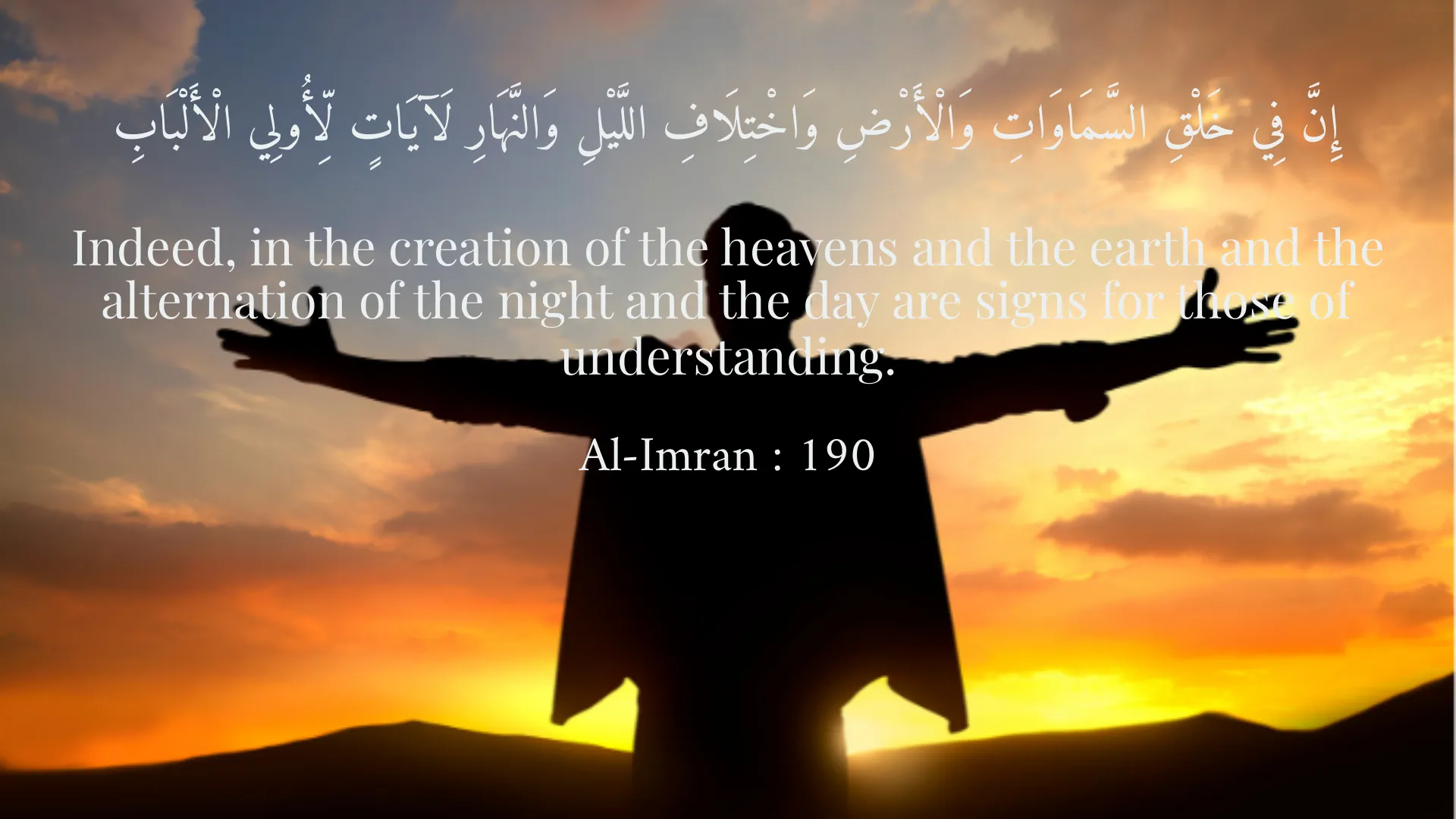Quranic Answer

The Holy Quran, as the divine guide for humanity, is not only compatible with logical skepticism but, in many verses, actively invites human beings to think, reason, ponder, and research, while strongly discouraging blind acceptance and ignorant imitation. This Quranic approach fosters a unique form of constructive and dynamic skepticism, aiming to achieve certainty and well-founded faith, rather than descending into unproductive doubt or obstinate denial. In the Quranic perspective, intellect and thought hold a special place. Time and again, after mentioning signs of His power and wisdom in creation (such as the heavens and the earth, rainfall, growth of plants, the alternation of night and day), God uses phrases like 'for those who reason' (لِقَوْمٍ یَعْقِلُونَ), 'for people of understanding' (لِأُولِی الْأَلْبَابِ), 'signs for a people who reflect' (لَآیَاتٍ لِّقَوْمٍ یَتَفَكَّرُونَ), and 'Do they not then ponder on the Quran?' (أَفَلَا یَتَدَبَّرُونَ الْقُرْآنَ). These repeated invitations to contemplation indicate that the desired faith in Islam is one based on insight and knowledge, not a faith formed out of ignorance or external pressure. This type of thinking and pondering is, in essence, a constructive skepticism that, by posing fundamental and profound questions, seeks to uncover truth and arrive at convincing answers. Islam, through the Quran, strongly opposes blind imitation of ancestors or uncritical acceptance of prevailing beliefs. In verses such as Surah Al-Baqarah, verse 170, when disbelievers are asked why they do not follow what God has revealed, they respond: 'We follow what we found our fathers doing.' The Quran condemns this type of imitation, asking: 'Even if their fathers understood nothing and were not guided?' This verse clearly demonstrates that even cultural and religious inheritances from the past must be subject to rational review and scrutiny. This is the essence of logical skepticism, which demands that an individual test every belief, no matter how traditional or deeply rooted, against the criteria of reason and evidence, rather than accepting it merely due to its antiquity or prevalence. Furthermore, the Quran presents the phenomena of the universe as 'Ayat' or 'signs' – signs that inherently point to the existence, oneness, and power of the Creator. The invitation to observe and reflect upon these signs offers a form of empirical and rational methodology. When God says: 'And on the earth are signs for those who are certain, and in yourselves, do you not then see?' (Surah Adh-Dhariyat, verses 20-21), this is an invitation to a precise and critical examination. Such examinations may initially begin with doubt and questioning, but their ultimate goal is to achieve certainty and insight. The fundamental difference between the logical skepticism endorsed by the Quran and nihilistic or destructive skepticism lies in its purpose and intention. The logical skepticism valued by the Quran is a doubt that seeks to attain truth and deepen faith. This doubt is akin to the inquiry of Prophet Abraham (peace be upon him) regarding how God brings the dead to life, which transformed into certainty after witnessing God's answer (Surah Al-Baqarah, verse 260). Such doubt serves as the driving force for research and the pursuit of knowledge. Conversely, negative and unhealthy skepticism is born out of arrogance, obstinacy, or an evasion of responsibility, leading one into misguidance and denial instead of guiding towards truth. In conclusion, it can be stated that the Quran provides ample space for inquiry, critical thinking, and constructive skepticism. Faith in the Quran is a conscious and reasoned choice, attained after contemplating divine signs and reflecting on existential truths. This Holy Book, instead of imposing faith, invites humanity on an intellectual journey where both mind and heart work in harmony to achieve certainty and tranquility on the path of divine guidance. Therefore, logical skepticism, if pursued with the intention of reaching truth and insight, is not only commendable but also a pathway to strengthening and deepening faith and divine knowledge – a path that the Quran itself pioneers.
Related Verses
إِنَّ فِي خَلْقِ السَّمَاوَاتِ وَالْأَرْضِ وَاخْتِلَافِ اللَّيْلِ وَالنَّهَارِ لَآيَاتٍ لِّأُولِي الْأَلْبَابِ
Indeed, in the creation of the heavens and the earth and the alternation of the night and the day are signs for those of understanding.
Al-Imran : 190
وَإِذَا قِيلَ لَهُمُ اتَّبِعُوا مَا أَنزَلَ اللَّهُ قَالُوا بَلْ نَتَّبِعُ مَا أَلْفَيْنَا عَلَيْهِ آبَاءَنَا ۗ أَوَلَوْ كَانَ آبَاؤُهُمْ لَا يَعْقِلُونَ شَيْئًا وَلَا يَهْتَدُونَ
And when it is said to them, 'Follow what Allah has revealed,' they say, 'Rather, we will follow that which we found our fathers doing.' Even though their fathers understood nothing, nor were they guided?
Al-Baqarah : 170
وَفِي الْأَرْضِ آيَاتٌ لِّلْمُوقِنِينَ
And on the earth are signs for those who are certain [in faith],
Adh-Dhariyat : 20
وَفِي أَنفُسِكُمْ ۚ أَفَلَا تُبْصِرُونَ
And in yourselves. Then will you not see?
Adh-Dhariyat : 21
Short Story
It is narrated that in ancient times, there lived a man named Hakim, who was constantly in pursuit of knowledge and truth. One day, he heard a wise master say: 'True faith is not to accept with closed eyes, but to look with open eyes and see.' Hakim, who until then had accepted everything he heard from his ancestors without question, pondered deeply over these words. He began to study books, observe nature, and question learned people. Initially, this questioning brought him a kind of bewilderment, but the more he researched, the fewer his ambiguities became, and truths became clearer to him. Instead of drowning in doubt, Hakim built a bridge from it to certainty. He understood that intellect is a divine gift for attaining knowledge, and logical skepticism is a key to unlocking the doors of wisdom. Ultimately, his faith not only did not weaken but became deeper and stronger than before, because it was now founded on insight and reasoning.